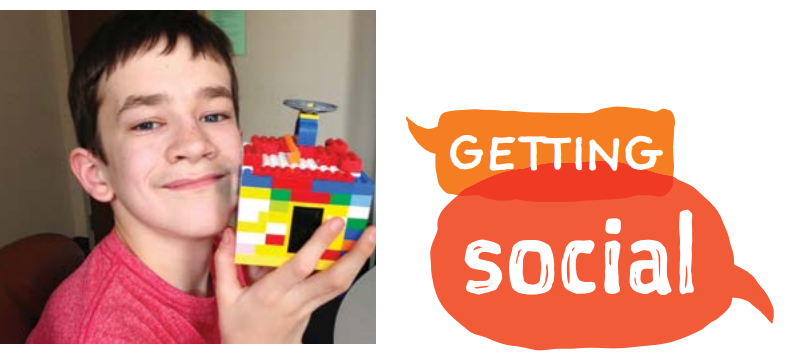Book review
Dr. David Walsh poses the million-dollar question parents of teenagers ask themselves on a daily basis: why do they act that way? Not only is this the title of Walsh’s new book, but what might surprise parents is the answer can be found directly under that mop of hair that’s either unwashed and messy or carefully coifed.
Walsh, of Minneapolis, is one of the nation’s leading experts on teenagers and family life, as well as president and founder of the internationally known National Institute on Media and the Family. His new book is the result of extensive research suggesting, as he writes, “the adolescent brain is not a finished product but a work in progress.” So, while you might find your son is growing out of his clothes faster than you thought possible, or that your daughter seems to have exchanged her child-like ways for a sophisticated attitude you hoped wasn’t possible, the real life-changing growth is happening inside his or her brain.
As Walsh details in his book, there are several key components to the brain. One of the most critical is the prefrontal cortex (PFC) or what he refers to as “the CEO,” responsible for planning ahead, considering consequences, and managing emotional impulses. For parents who find it difficult to communicate with a teen who is angry or aggressive, they have only to look to the developing PFC to discover the reason why. “Teens literally have a gut reaction to things. They can’t process nonverbal cues like adults can and can’t control their anger impulses as well as adults,” says Walsh.
The important thing for parents to remember is to stay off the “anger escalator” when a heated argument arises. “The chances for effective communication go down as things escalate in the discussion,” says Walsh. “Your teen’s brain is built for power struggles, and they are wired to respond emotionally.” That’s why the most effective ways for parents to communicate is to focus on behavior and be specific. “Instead of saying to your teenager ‘you’re really rude’-which is a generalization that will probably force them to respond in anger-say ‘I thought it was very rude the way you left the room when I was talking’,” says Walsh. “That helps focus the discussion on the behavior that needs to be changed.”
Why Do They Act That Way? Is filled with interesting anecdotes from Walsh’s 30-plus years of experience as a teacher, coach, counselor, and father of three children, now grown. In a chapter on the importance of helping your teen maintain family connections, Walsh tells a story about the first day of his family’s two-week vacation in the mountains when the children were teenagers. One sat in “stony, cold silence” since he wanted to stay at home with friends; one flew into an explosive “you’re so unfair” rage when Walsh and his wife wouldn’t allow him to buy fireworks, and the youngest moaned about the lack of air conditioning in the family car. Walsh writes that he and wife just looked at each other, thinking the same thing: “Why were we doing this? Why were we torturing ourselves? Why didn’t we disown them, sell them, or drown them and hide the bodies? Then the two of us could go on a vacation that we could enjoy?” Imagine Walsh’s surprise years later when during a Christmas gathering with the kids, they talked about how their favorite family vacation was that very same trip to the mountains.
While Walsh says it’s normal for teens to “ask their parents for a divorce,” it’s important that we resist the temptation to grant it. “Kids need to establish their own identity and independence, but it’s important for them to maintain their family connections,” he says, adding that parents might need to set realistic expectations, i.e. not requiring the teen to attend every family gathering. “Even though it might seem easier not to fight with them and let them off the hook, it’s a mistake for parents to completely eliminate these connection points.”
Walsh firmly believes the three guiding principles of parenting are connection, guidance, and love. “The common theme in all the research done on kids who survive adolescence fairly well is that their parents stayed connected to them,” says Walsh. “They knew their kids’ friends, the friends’ parents, went to teacher conferences, and just knew what was going on in their kids’ lives.” While parents shouldn’t go so far as to smother the child or control his or her life, Walsh says their consistent involvement is essential.
Expanding your teen’s boundaries is also important, but at the same time, he or she needs you to guide her and set limits. “Parents need to be clear on subjects like curfew and have consequences-which they enforce-should the teen disregard those limits,” says Walsh. He also encourages parents to talk to one another about how things are going with teens in other families. “They’ll realize they aren’t the only ones who are struggling at times,” says Walsh.
Walsh acknowledges that occasionally “rocky is part of the journey” when you are raising a teenager but also reminds parents “adolescence is not a problem to be solved, it is an experience to be lived.”




















